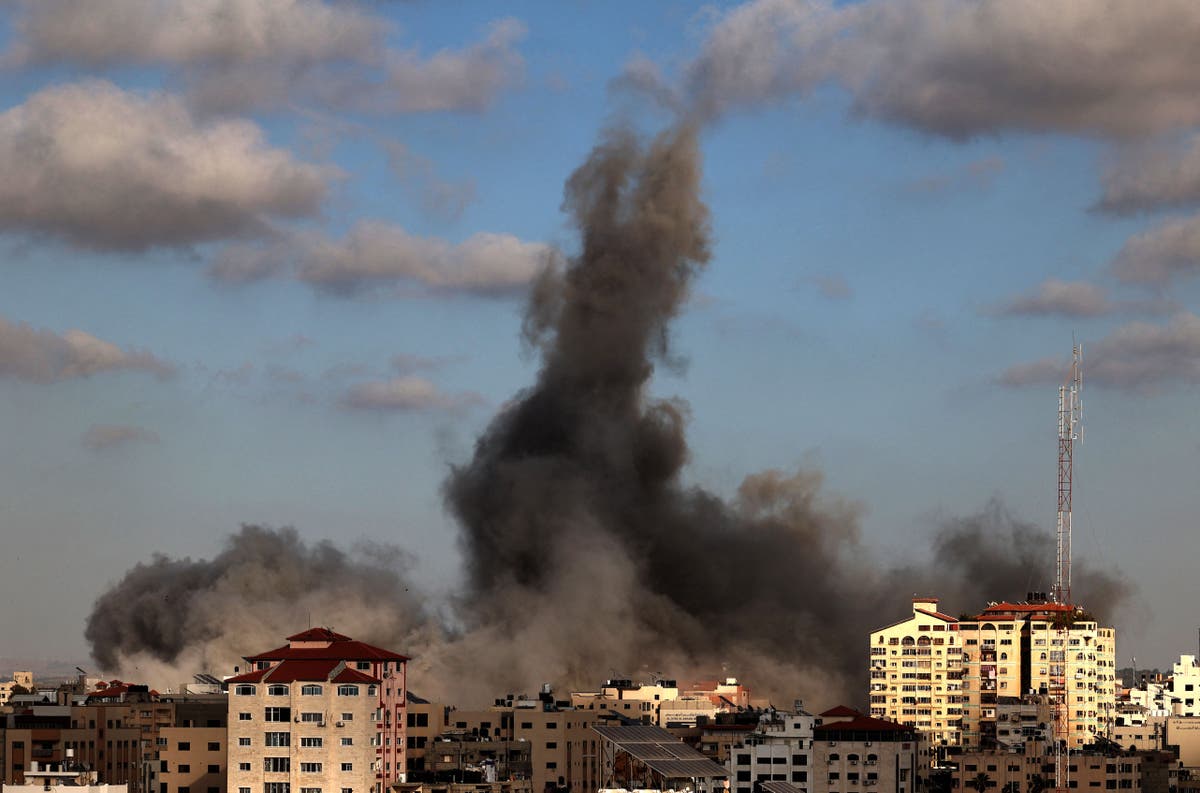Seems to me there is fault on both sides. To be fair, the Palestinians did democratically elect the Hamas political party, who several nations including the US and us regard as a terrorist organisation, and amongst their policies one of them is the destruction of Israel. Whatever side of the argument you are, that policy is never going to end well for the people you represent.
The Israelis on the other hand have elected a firebrand in Benjamin Netanyahu, who seems hell bent on fighting fire with fire. He seems to believe that what some Palestinians regard as 'Muslim land' is actually 'Jewish land', and it is perfectly acceptable just to kick people Palestinians out of their homes that they have lived in for many years because it is 'Jewish land'. That too is never going to end well.
I just wish they would stop delving into the history books trying to argue who's land it is, and just try and find a way to co-exist peacefully together. It would be nice if we could replace Hamah with Yasser Arafat and Netanyahu with Yitzhak Rabin, as they seemed to be making some sort of progress - but they're both dead.
Yep, Rabin was the epitome of israelis who wanted to try to find a solution other than the policy of slowly trying to drive the palestinians out exemplified by Sharon and Netanyahu. I heard the story "the right complained about Rabin inviting Arafat to his house saying 'you don't invite your enemies to our house' and Rabin replying 'you don't make peace with your friends'. He was killed by a right-wing israeli, sponsor unknown.
It's odd how Arafat has become a sort of semi-beneficent figure after he shook Rabin's hand (and embraced Clinton) at the White House having been reviled for years. What he signed, the Oslo Accords (
see Britannica) synopsis
"The accords embodied two basic sets of exchanges. First, Israel would shed responsibility for the Palestinian population while retaining strategic control of the territory. The Palestinians would be rid of Israeli military rule and gain self-government, potentially leading to statehood. Second, Arafat’s disavowal of violence and his pledge to fight terrorism—through the use of a domestic Palestinian police force—would improve Israel’s security. The Palestinians would benefit from the large amount of foreign aid it would receive from the United States and other countries and from economic agreements made with Israel that were designed to foster employment and trade."
In effect Arafat's team gave up the right to self-determination and agreed to police whatever the state of israel left it in return for future negotiations and some us aid. This more or less blew Fatah and Arafat as a serious force to negotiate a future settlement that might have worked through fixing borders, making return happen and such like. It also, because the limits of the future negotiation weren't closed (settlements might be returned, some palestinians might return etc) destroyed Rabin's political (and mortal) future.
A very important point here is that, albeit for a shitty stupid deal, Arafat renounced violence and Fatah acknowledged the state of israel. Arab policy can change.
Fatah didn't stop palestinian violence, not surprising since given what they were defending. This in turn stalled the moderates' case israel, Netanyhu won the 1996 election there and israel resumed stealing land for settlements, preventing palestinians travelling in 'their own country' or evicting people from their homes.
Unsurprisingly as they weren't associated with the big sell-out, Hamas won parliament elections in 2006. In 2007 Mahmoud Abbas of Fatah, with the support of israel, USA etc suspended the palestine authority and, in short, gaza came under control of hamas.
I just wish they would stop delving into the history books trying to argue who's land it is, and just try and find a way to co-exist peacefully together. It would be nice if we could replace Hamah with Yasser Arafat and Netanyahu with Yitzhak Rabin, as they seemed to be making some sort of progress - but they're both dead.
Well, the land is the issue, as the people have got it stole most of it (and houses, money etc) from the people who don't (some of it was bought prior to 1948). So, if they are going to co-exist it has to be on the basis of land and political power. And trust.

